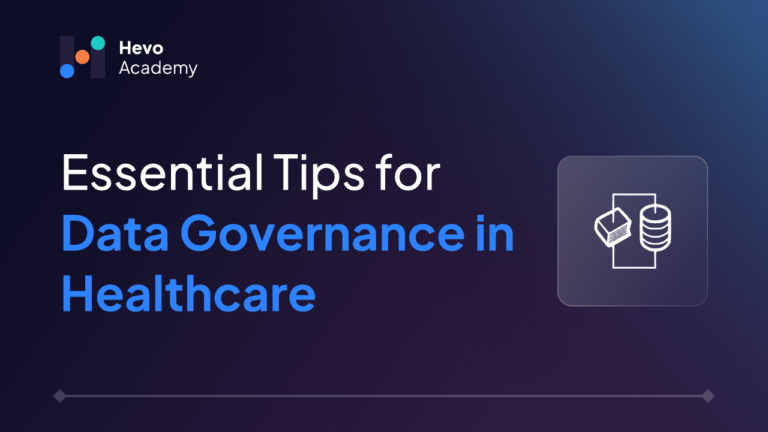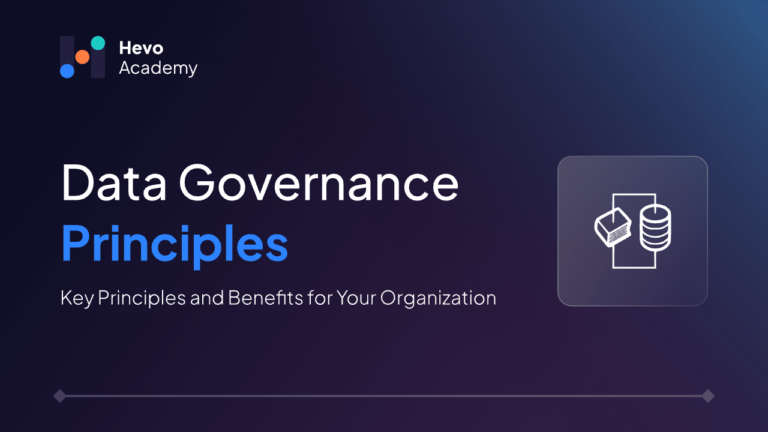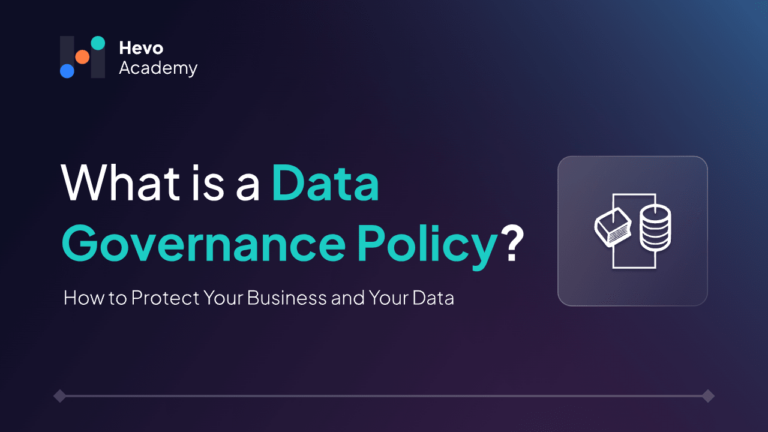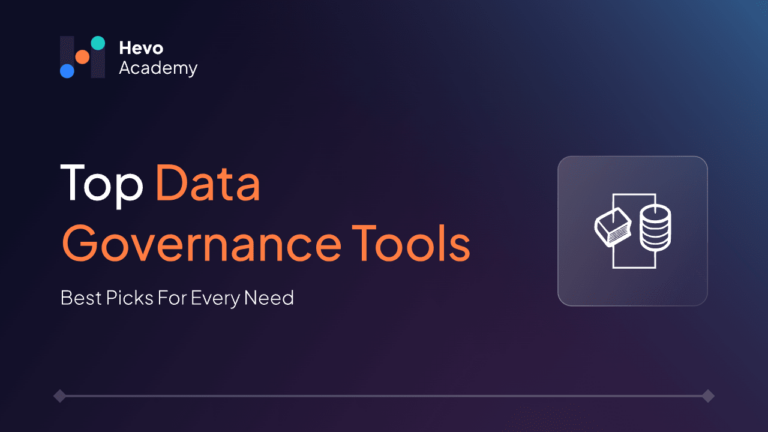As the digital transformation of healthcare systems is underway, data management has emerged as a key priority. Healthcare institutions are, unfortunately, holding huge stocks of incredibly confidential and vulnerable patients’ data, which require the most careful protection, precision, and planning. Data governance appears as the foundational element of data management across the healthcare sector to maintain patients’ data confidentiality and use it appropriately to enhance therapeutic results.
Table of Contents
The guide outlines key steps for effective data governance in healthcare organizations and provides solutions to challenges and compliance for 2025 and beyond.
What is Data Governance?
Data management refers to the supervisory activity in an organization that focuses on data quality, security, and availability. Major areas include data ownership and responsibilities, data accountability, and information compliance. Data governance helps maintain legal compliance with healthcare IT laws like HIPAA & HITECH, patient privacy, and improve data evaluation.
Data governance is a wide concept that outlines how healthcare organizations acquire, organize, secure, and utilize their data resources. It encompasses a holistic approach to data management involving:
- Appropriate management of data ownership manners
- Robust stewardship mechanisms
- Tough measuring up procedures
- Standard in data quality and completeness
- Techniques used in compliance regulation
Need For Data Governance in Healthcare
Effective data governance is essential in healthcare delivery since it primarily concerns patients’ safety, compliance, and confidence. Unlike other industries, healthcare comes in contact with personal data that are personal and sensitive to attention, which is crucial because one wrong step can lead to the loss of many lives.
Here’s why it’s critical:
- Patient Safety: Incorrect clinical reports are likely to contribute to wrong diagnoses, wrong treatment, or even late treatment, with negative implications for people’s lives.
- Insurance Challenges: Incorrect data leads to claim rejection or delay when seeking insurance and increased strain for patients and families.
- Regulatory Compliance: Failure to adhere to such rules as HIPAA or GDPR means that companies can be fined, and their reputation is at stake. In addition, data may be compromised.
- Trust and Security: Cyber attacks affect not only patients but the entire society through loss- of- confidence in healthcare facilities, thus leading to failure in early presentation.
How to implement data governance in healthcare?
Implementing effective data governance in healthcare requires essential capabilities to ensure compliance, enhance data reliability, and improve patient care outcomes:
- Data Cataloging: A single source of truth for your data enables the various healthcare teams to quickly find, comprehend, and utilize necessary data. Other automated data catalog tools include- Metadata harvesting and Semantic mapping, all of which ease this process.
- Metadata Management: It is very important to manage metadata, whether clinical, operational, or administrative and to organize data for proper use or governance. Automation of feeds and synchronization between systems occurs to enhance and maintain data conformity and adherence.
- Data Lineage: Following data through systems from production to consumption supports identifying starting points, changes, and inaccuracies, which can guide decision-making and prepare organizations for audits.
- Access Controls and Security: HIPAA controls access to patient’s information and other regulations by implementing strong access controls on the data set.
- Data Contracts: Data contracts establish clear agreements between data producers and consumers, outlining the expectations, responsibilities, and quality standards for data usage. As a result, everyone in your ecosystem is aligned, reducing the risk of data-related disputes and enhancing data reliability across the organization.
- AI-Assisted Policy Creation: By controlling data analysis, AI provides data governance policy recommendations and automates policy changes for uniform compliance.
- Real-time Alerts: Real-time notifications help track policy violations so that such occurrences do not hinder the functioning of an enterprise or violate its policies.
Challenges of Data Governance in Healthcare
The following challenges must be addressed for healthcare organizations to implement a sustainable data governance plan. Awareness of these hurdles and proactive measures can significantly improve outcomes:

1. Resistance to Change
It is common to have some level of resistance or apprehension to organizational change and any change in the new data governance policies introduced. This means that organizations should engage in proactive change management practices to increase ease of implementation. Staff engagement can be achieved by understanding new processes through clear communication, leadership support, and quality training.
2. Staff Training and Adoption
Training the staff on the data governance policies may take considerable time, energy, and professionalism. It is equally essential to establish timely, effective, and role-relevant training. Outside expertise can be enlisted to use HR groups or other consultants to guarantee that the training is total and practical.
3. Data Silos
Having many small systems in the different departments makes it difficult to have proper governance. To address this issue of silos, leaders need to put in place an integrated data platform while encouraging the sharing of the data. It has been established that one of the critical enablers of managing and updating data views is interdepartmental collaboration.
4. Ensuring Data Privacy
Preserving a patient’s confidentiality is highly important. HIPAA is just an example of such a rule, and organizations have to have privacy policies, train employees, and use measures such as encryption and access rights to follow them. In the survey by Statista, policy renewal is revealed to be the common effort healthcare leaders employ to deal with privacy issues.
Best Practices for Effective Data Governance in Healthcare
The following are best practices every healthcare organization should consider to enhance data governance. Most of these practices are used to enhance data protection, compliance, and quality and to assist in making the right decisions and delivering services to patients.
- Establish Clear Policies and Standards: Establish and disseminate guidelines for data governance in the organization with all employees. Policies should always cover issues related to privacy and security as well as accessibility of data, especially in fields that are bound by law, such as HIPAA.
- Data Quality Management: Ensure there are systems for ensuring high-quality data. Automated data cleansing must be done continuously to forestall the emergence of common mistakes in patients’ records inputs and, likewise, never fail to conduct an audit to ensure that the data in the database for use in decision-making and care delivery is accurate.
- Secure Data Access: Different users require a different level of access to data by employing RBAC to limit access to restricted data to those who should have access. This reduces instances of data leakage while promoting workflow in the organization.
- Data Ownership and Accountability: Designate accountability to such campuses, departments, or individuals to ensure correctness and compliance with the data. It is, again, a much clearer way to prevent handling from being mishandled, thus improving its integrity.
- Ongoing Training and Awareness: Make it a practice to educate the staff about the current data governance policies, data privacy laws, and cybersecurity measures to have the employees on the right side of the law.
- Audit and Monitoring: Daily and weekly scan of the data to identify anomalies; take necessary measures and prevent unauthorized use of it; be compliant with internal and external rules and regulations.
The Role of Technology in Data Governance for Healthcare
Data governance in healthcare through real-time monitoring, compliance enforcement, and automation has been enhanced through AI, machine learning, and automation. These technologies assist in identifying violations, estimating security threats, and executing routine tasks such as identifying data classifications and compiling reports. For instance, using AI in systems can distinguish intrusion to restricted data and promptly alert the managers, limiting security threat occurrences and response times.
Machine learning models improve the quality of data by detecting errors and processing corrections to provide accurate data for twenty-four-seven patient care and analytics. Moreover, automated compliance monitoring saves time and ensures that healthcare organizations remain current with ever-changing requirements to prevent non-compliance.
Case Study: Mount Sinai Hospital integrated AI technology into its environment to analyze radiology scans, which cut down the time it took to diagnose a situation to 15 minutes from the initial 180 minutes the task used to take and with enhanced accuracy, having risen by 28 percent. It also allowed the radiologists to see minor discrepancies while the daily caseload increased threefold, directly enhancing patient and organizational satisfaction.
The Future of Data Governance in Healthcare
Some potential trends in the healthcare data management sector that are worth considering include the use of blockchain in patient data management, the application of artificial intelligence in data analysis, and higher levels of data protection in high-end data encryption. There will always be changes in regulations over the years, and healthcare organizations should respond to any changes in regulations that come with new data privacy laws.
It is expected that the rights over personal and patient data will be more strictly regulated in the future with a focus on patient data visibilities. These changes require preparation with appropriate, flexible, and technological data management frameworks.
Conclusion
Data management is very important in the health sector because it involves handling patients’ data, which is often form, accurate, and easily retrievable. Given the continued growth in and changes to regulatory expectations from healthcare organizations, effective governance structures will further protect patients’ trust and overall organizational success.
In the future, the idea of using artificial Intelligence, automation, and machine learning in managing health data will emerge and become even more crucial since it helps enhance data protection. The constant changes in laws and regulations accompanying the future of digital health data and the development of new technologies mean that healthcare professionals must remain vigilant and cultivate a culture of compliance and data ownership. Sign up for a 14-day free trial for efficient data migration.
FAQs
1. What is data governance in healthcare?
Healthcare data governance is defined as a systematic process of managing healthcare data correctly, securely, and in a way that is available and compliant to enhance patients’ care, meet regulatory requirements, and effectively support care delivery.
2. What are the 4 pillars of data governance?
The 4 pillars include data quality, privacy/security, data stewardship, and compliance so as to improve the reliability and availability of data, security of data, accountability of data, and meeting of regulatory measures, respectively.
3. Is HIPAA data governance?
HIPAA gives the regulatory requirements for healthcare data confidentiality and security, but these are not extensive in data governance.





